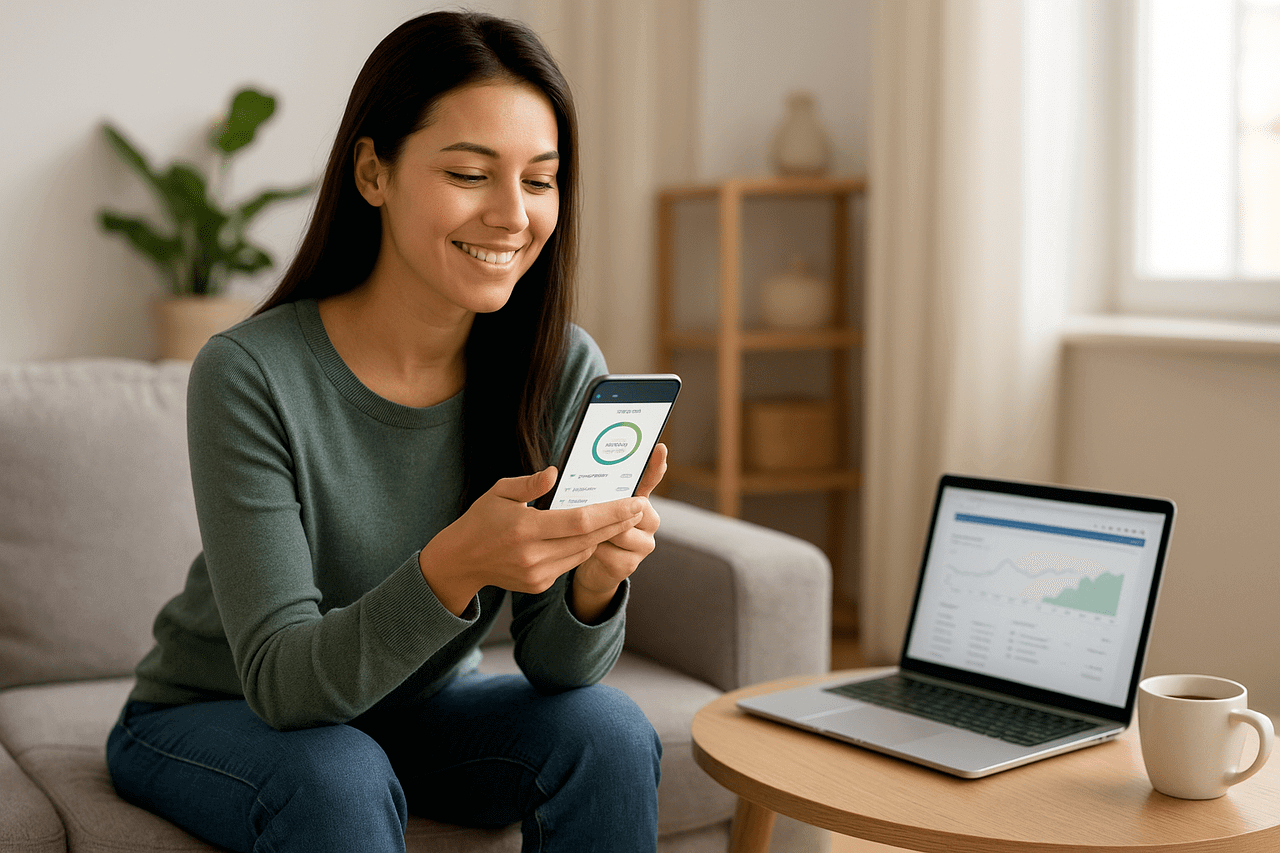Finding the correct app for budgeting may seem difficult if you’re a total newbie in finance. There are a bunch of tools out there; however, how can you know which ones are the best budgeting apps for beginners, easy to use, and effective?
Good news, and the one I’m pleased to share is that after testing dozens of apps and going through hundreds of user reviews, while taking in ideas from real financial experts along the way, I bring you this guide to budgeting apps for the truly best and most trustworthy. Whether you want a basic budgeting app, something that automates everything, or one that helps you work toward goals, we have it here.
Let’s break down what budgeting apps are for in the first instance.
Why Use a Budgeting App in the First Place?
Like personal trainers for your finances, budgeting apps help keep you accountable and reduce stress around money management. According to a NerdWallet survey in 2024, 53% of U.S. adults using a budgeting app feel more in control of their money.
Some of the features of budgeting apps that appeal to beginners are:
- Automatic tracking of spending
- Setting and reaching savings goals
- Alerts against overspending
- Seeing the big picture of your finances
The Best Budgeting App Aspects for Beginners
Not all apps are made equal. Here is what matters most for a beginner:
- User-Friendly: Simple interface, no complicated boards, or hard-to-learn stuff.
- Price: Free or low initial cost.
- Automation: An app should sync expenditures with your bank.
- Goal-Oriented: Savings target, pay down debt, or emergency accounts.
- Customizability: Gives you the ability to categorize according to your lifestyle.
Top 7 Best Budgeting Apps for Beginners in 2026
Here’s a curated list based on usability, features, and trustworthiness.
1. Mint: Best Free Budgeting Apps for Beginners
Mint has been around for several years and continues to be a popular choice. The app connects to your bank accounts and automatically categorizes spending, therefore giving beginners an overview of where their money is going.
Best for: beginners who are looking for something free in the all-in-one category.
Pros:
- Free of charge
- Bill tracking and reminders
- Credit score monitoring
Cons:
- Ads can be distracting
- Advanced users may outgrow it
2. YNAB (You Need a Budget): Best for Hands-On Beginners
YNAB is a zero-based budgeting method that gives every dollar a job. It fits well with those beginners who want to be very intentional with their money.
Best for: Those willing to take an active role in the management of their spending.
Pros:
- Excellent for debt payoff
- Strong community support
- Handy mobile app
Cons:
- Costly at \$14.99/month
- Steeper learning curve compared to Mint
3. Goodbudget: Best Envelope System App
Goodbudget digitizes the envelope system if you know of the envelope method, but do not want to deal with cash.
Best for: Families and couples wanting shared budgeting.
Pros:
- Simple, visual design
- Great for beginners on shared budgets
- Sync across devices
Cons:
- Manual expense tracking (not automatic syncing)
4. PocketGuard: Best for Preventing Overspending
PocketGuard shows how much “spendable” money is left for the week after accounting for all bills, goals, and savings.
Best for: Beginners struggling with impulse purchasing.
Pros:
- Clear “In My Pocket” feature
- Subscription tracking
- Automated expense categorization
Cons:
- Limited features for some goal tracking
5. EveryDollar: Best for Dave Ramsey Followers
EveryDollar assigns a job to every dollar using the zero-based budgeting system developed by Ramsey’s team.
Best for: Beginners in Ramsey’s “Baby Steps.”
Pros:
- Easy design
- Free version available
- Debt payoff focus
Cons:
- Only bank syncing is available in the paid version
- Not as feature-rich as YNAB
6. Honeydue: Best for Couples
Discussing monetary matters inside a relationship can be hard. Honeydue helps partners track bills, expenditures, and savings together.
Best for: Couples that are just starting with joint budgeting.
Pros:
- Free to use.
- Great for fostering transparency in relationships.
- Bill reminders.
Cons:
- Limited usability of the app for single users.
- Not very advanced in terms of features.
7. Simplifi by Quicken: Best for Goal-Oriented Beginners.
Simplifi is sleek, modern, and created with the intent of keeping a beginner on track with financial goals.
Best for: People who want to see visual progress on those goals.
Pros:
- User-friendly interface
- Customizable reports
- Real-time tracking
Cons:
- Paid only (\$2.99/month)
- Limited free trial
Best Free Budgeting Apps for Beginners
If you want to avoid paying anything up front, here are your best options:
- Mint (everything)
- Goodbudget (envelope-style)
- EveryDollar Free (manual entry)
- Honeydue (for couples)
Best Budgeting Apps for Beginners Interested in Automation
For those who want the app to do the bulk of the work:
- Mint (automatic syncing)
- PocketGuard (automated categorization)
- Simplifi (goal-related automation)
Things to Consider When Choosing the Best Budgeting App for You.
- Play with the free trial: Most budgeting apps offer a free trial. Test it out before fully committing.
- Stick to your design: Do you wish to have a hands-on approach or plan on full automation?
- Consider the long-term: Find one that fits your needs as you progress.
FAQs: Best Budgeting Apps for Beginners
1. Are budgeting apps safe?
Most of them have bank-grade encryption. Always consult reviews and get informed on their privacy policies for transparency.
2. Which budgeting app is free?
Mint, Honeydue, and the free version of EveryDollar are some of the best options available for free.
3. What do you think the simplest budgeting program is for complete beginners?
Mint is the easiest for beginners because of its automation and simplicity.
4. Do I need multiple budget apps?
No, and one is a good number to start with. Too many will make things complicated.
5. Do budgeting apps help me save money?
Definitely. It has been reported that through tracking expenses and creating goals, an average user may save hundreds or even thousands in a year.
Conclusion: Which Budgeting App for Beginners?
Ultimately, the best budgeting application for a beginner will depend on what you’re most interested in. Mint is a great option if you’re looking for a free and simple program. If you prefer to drill down into the minutia, however, YNAB has some serious power behind it. Couples might find Honeydue helpful, while PocketGuard can help all those people who don’t have much left in their budget.
Stereo, pick one app, stick with it for 90 days, and see how your money habit compensates!
Which is the budgeting app you are eager to try first? Of course, since this is a comparison article, would you also like me to make it more attractive with a comparison infographic (Mint vs YNAB vs PocketGuard)?




